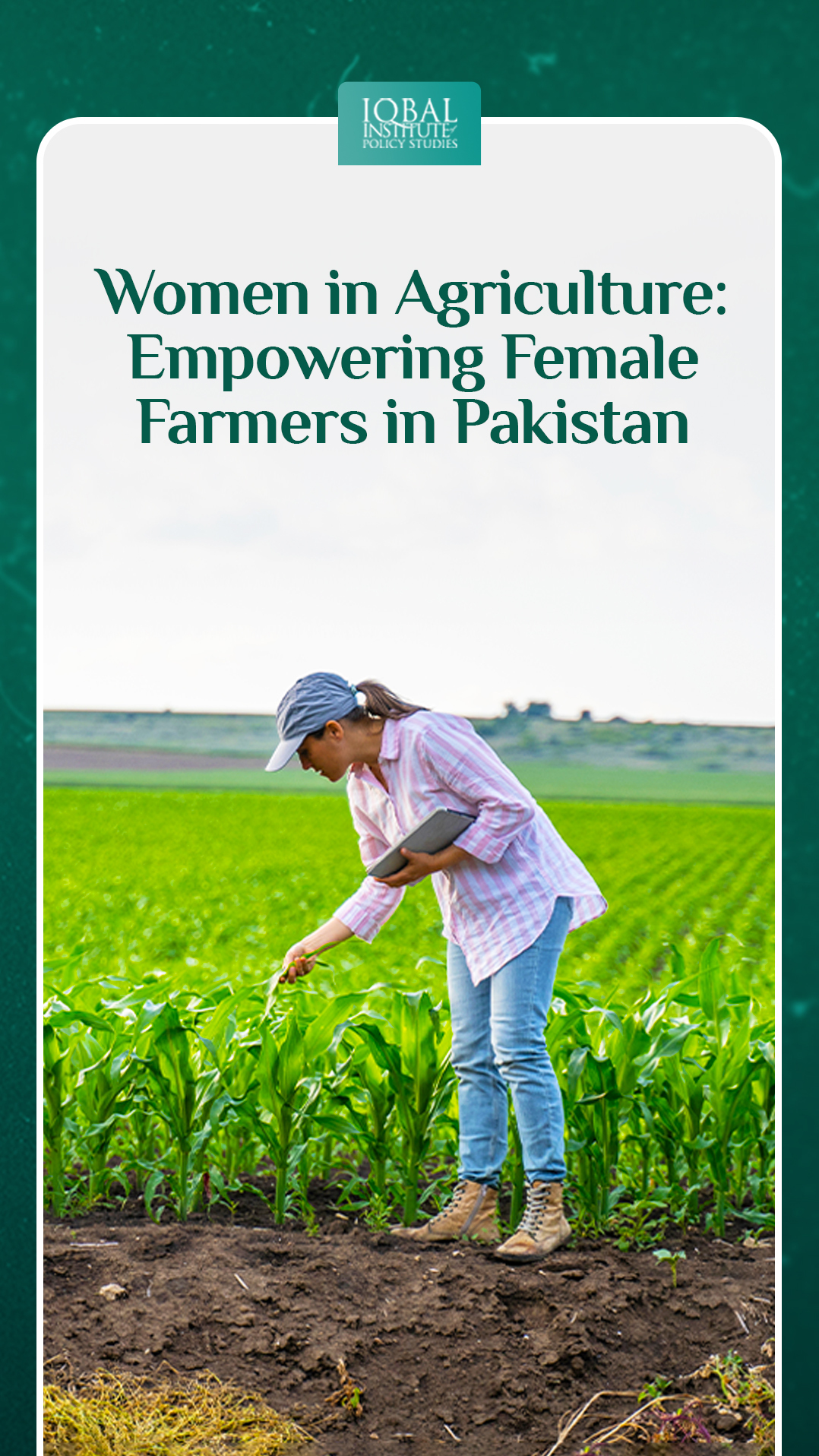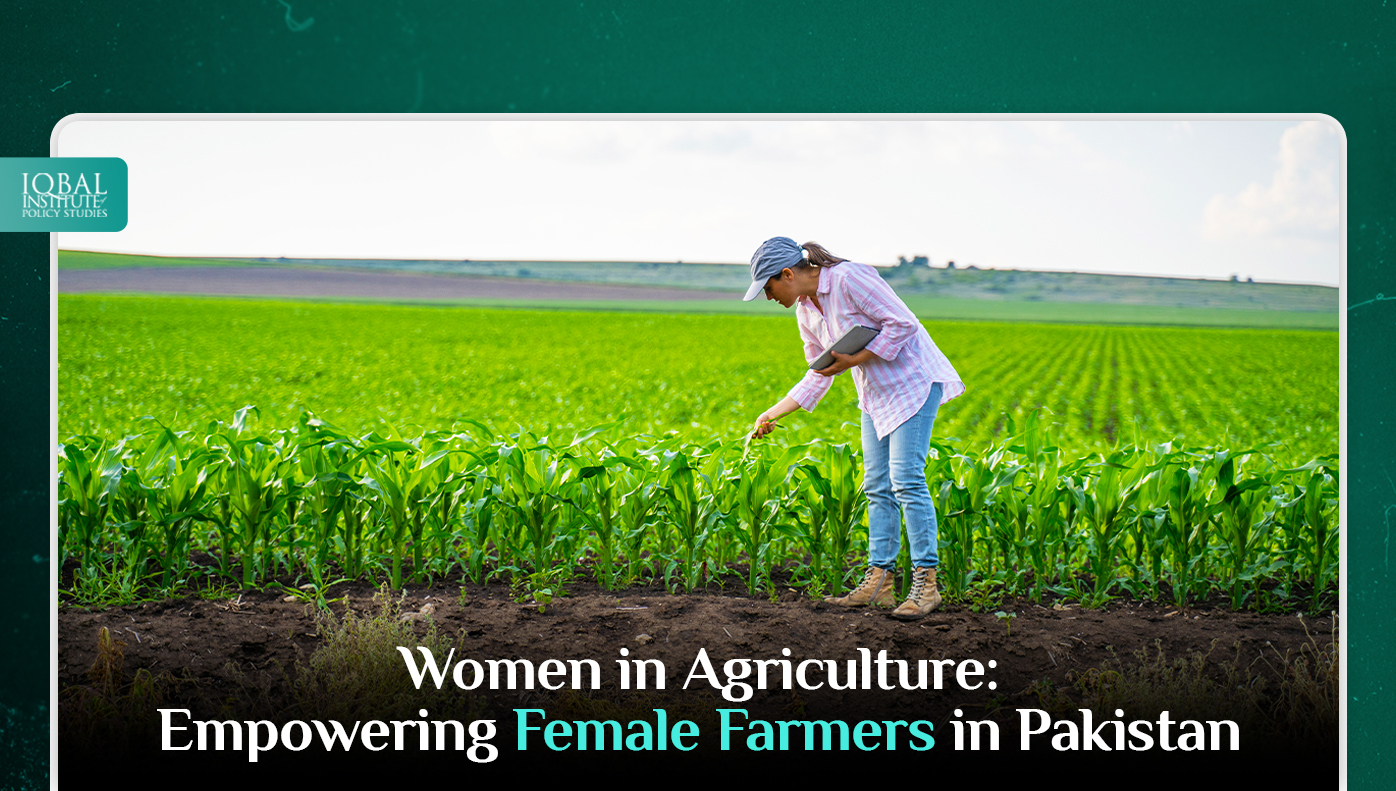A profound transformation is underway in the heartlands of Pakistan, where fertile fields stretch as far as the eye can see. It is a story of resilience, determination, and the indomitable spirit of women who have, for generations, silently fueled the nation’s agriculture. These women, often unseen and unheard, are the unsung heroes of Pakistan’s rural landscape, and their stories of empowerment are shaping the future of the country’s agricultural sector. In this blog, we embark on a journey to explore the pivotal role of women in agriculture and the remarkable impact of their empowerment in Pakistan.
For far too long, the contributions of female farmers have remained obscured by gender norms and discrimination. However, they represent a formidable force within the agricultural sector, comprising nearly half of the labor force. From cultivating crops to tending to livestock, from horticulture to cottage industries, women are actively engaged in various facets of farming. Their role in ensuring food security, sustaining rural livelihoods, and fostering economic growth is nothing short of remarkable.
Yet, this journey toward empowerment is not without its challenges. Gender-based disparities persist in terms of access to resources, education, and market opportunities. In this blog, we will not only celebrate the resilience and determination of female farmers but also shed light on the obstacles they face and the transformative solutions that can pave the way for their full participation in shaping Pakistan’s agricultural future. Women in agriculture are not just cultivating crops; they are cultivating a brighter, more inclusive future for Pakistan.
The Unseen Force in Agriculture
The Unseen Force in Agriculture” refers to the incredible yet often overlooked contributions of women in Pakistan’s farming landscape. These unsung heroes of agriculture have been the steadfast pillars of rural livelihoods for generations. Though their roles have traditionally been underappreciated, women are the unseen force driving agricultural productivity across the country.
Women in Crop Cultivation
In the heartlands of Punjab and Sindh, women are seen working in the fields, plowing, planting, and harvesting crops. They play a crucial role in every step of the crop cycle, from preparing the soil to collecting the harvest.
Livestock Rearing
Women are also actively involved in livestock rearing, including caring for cattle, goats, and poultry. This not only provides nutrition to their families but also generates income through the sale of milk, meat, and eggs.
Horticulture and Kitchen Gardening
The horticulture sector is witnessing a growing trend of women engaging in kitchen gardening and cultivating fruits and vegetables. This allows them to contribute to their family’s nutritional needs while also earning income from selling surplus produce.
Cottage Industries
Many women in rural Pakistan are involved in cottage industries related to agriculture. They engage in activities such as food processing, dairy production, and handicrafts, adding value to agricultural products.
Challenges Faced by Female Farmers
Despite their pivotal role, female farmers in Pakistan face several challenges:
Limited Access to Resources
Women often have limited access to land, credit, and agricultural inputs, restricting their ability to invest in farming and adopt modern practices.
Gender-Based Discrimination
Deep-seated gender norms and discrimination can hinder women’s participation in decision-making, both within the family and in agricultural cooperatives.
Education and Training
Many women lack access to education and training in modern farming techniques, limiting their knowledge and capacity to enhance productivity.
Unpaid Labor
Women’s contributions to agriculture are often unrecognized and unpaid, perpetuating gender disparities in income and economic empowerment.
Access to Markets
Limited access to markets and transportation can make it challenging for women to sell their produce at fair prices.
The Way Forward: Empowering Women in Agriculture
Access to Resources
Ensuring women have equal access to land, credit, and agricultural inputs is essential. Government and NGOs can provide targeted support for female farmers.
Education and Training
Promoting education and training programs tailored for women in agriculture can enhance their skills and knowledge.
Gender Sensitization
Raising awareness about gender equality and encouraging women’s participation in decision-making at the household and community levels is crucial.
Financial Inclusion
Expanding financial inclusion through women-centric microfinance schemes can empower female farmers economically.
Market Linkages
Facilitating women’s access to markets and providing training in marketing and value addition can boost their income.
Technology Adoption
Promoting the use of technology and mechanization in farming can reduce women’s labor burden and increase productivity.
Legal Support
Strengthening legal frameworks to protect women’s land rights is vital for their long-term economic security.
Conclusion
The empowerment of women in agriculture is not just a matter of equality; it is a powerful strategy for poverty reduction and rural development in Pakistan. By recognizing and addressing the unique challenges faced by female farmers, Pakistan can unlock the immense potential of its agricultural sector and foster a more inclusive and prosperous future for all. Women in agriculture are not just cultivating crops; they are nurturing communities and sowing the seeds of progress and gender equity in Pakistan’s heartlands.
This article is written by Radma Nouman. Radmais a research analyst at the Iqbal Institute of Policy Studies (IIPS).



Leave a Reply